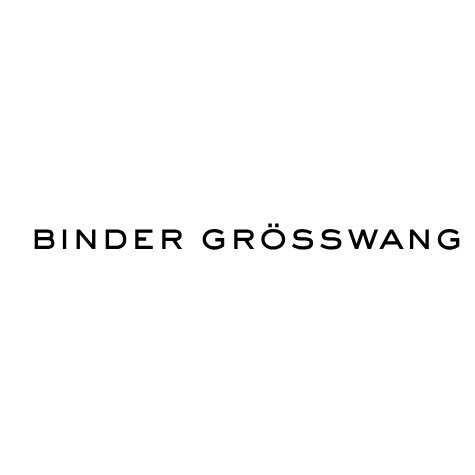Best Sanctions & Export Controls Lawyers in Austria
Share your needs with us, get contacted by law firms.
Free. Takes 2 min.
Or refine your search by selecting a city:
List of the best lawyers in Austria
About Sanctions & Export Controls Law in Austria
Sanctions and export controls are vital components of Austria's efforts to maintain international security, fulfill diplomatic obligations, and support global trade compliance. Sanctions are restrictive measures imposed by Austria, often in conjunction with the European Union (EU) or the United Nations (UN), targeting certain countries, organizations, or individuals. Export controls, on the other hand, regulate the transfer, shipment, and sharing of controlled goods, technology, and software to foreign destinations or end users.
In Austria, these laws ensure local businesses and individuals comply with both national and international rules. Violations can result in severe penalties, including substantial fines and criminal charges. Navigating sanctions and export controls requires awareness of legal obligations at local, EU, and international levels.
Why You May Need a Lawyer
Legal expertise in sanctions and export controls can be crucial for individuals and businesses facing complex scenarios. Common situations where legal help is needed include:
- Assessing the legality of exporting specific goods or technologies from Austria
- Managing business operations involving sanctioned countries, entities, or individuals
- Handling investigations or audits related to customs, trade, or export violations
- Applying for export licenses or navigating denied party screening
- Understanding changes following updates to EU or UN sanctions lists
- Responding to administrative or criminal proceedings for alleged breach of sanctions or export regulations
Lawyers provide practical guidance, risk assessments, and representation to help ensure compliance and avoid costly penalties.
Local Laws Overview
Sanctions and export controls in Austria are principally shaped by EU regulations and international agreements, as well as Austrian federal laws. Key aspects include:
- The Foreign Trade Act (Außenwirtschaftsgesetz or AußWG) governs export controls, dual-use goods, and foreign trade restrictions.
- EU regulations, including the Dual-Use Regulation, set strict controls on the export, brokering, and transit of certain goods and technologies considered sensitive for security reasons.
- Austrian authorities enforce both EU sanctions and those mandated by the UN, directly applicable in Austria due to its EU membership.
- Sanctions often prohibit financial transactions, trade in specified items, or the provision of certain services to designated entities or regions.
- Companies must screen customers and business partners to avoid dealings with sanctioned persons or entities.
- Violations may lead to administrative fines or criminal prosecution, depending on the severity and intent.
Frequently Asked Questions
What is the difference between sanctions and export controls?
Sanctions are restrictive measures targeting countries, individuals, or organizations for policy reasons such as security or human rights. Export controls specifically govern the movement of sensitive goods, technology, and software to prevent misuse.
Who enforces sanctions and export controls in Austria?
The Austrian Ministry of Finance, Customs Authority, and Federal Ministry for Digital and Economic Affairs are main enforcers. EU bodies and international organizations also play a significant role.
Do Austrian businesses need a license to export controlled goods?
Yes, exporting dual-use or military goods, and certain other controlled items, generally requires an export license from Austrian authorities, depending on the product and destination.
Are EU sanctions automatically applicable in Austria?
Yes, as an EU member state, Austria automatically applies all EU sanctions and restrictive measures.
How can I find out if my business partner is a sanctioned entity?
Austrian businesses should conduct due diligence checks using publicly available EU and UN sanctions lists, as well as utilize screening tools recommended by authorities.
What happens if I accidentally violate export control laws?
Unintentional violations can still result in penalties. Prompt disclosure to authorities and corrective actions may mitigate consequences, but legal advice is strongly recommended.
Do sanctions apply to services as well as goods?
Yes, sanctions may restrict not only goods but also services such as financial transactions, technical support, and consulting to certain regions or entities.
Are personal travelers subject to export controls?
Yes, individuals traveling with controlled items, including technology or software, must comply with export regulations, even for temporary export.
Can a lawyer help with export licensing in Austria?
Absolutely. Lawyers can help prepare applications, ensure supporting documents are correct, and liaise with authorities to facilitate approvals.
What are the penalties for non-compliance with sanctions or export controls?
Penalties range from administrative fines to severe criminal charges, including imprisonment for serious breaches, depending on intent and scale of violation.
Additional Resources
A variety of institutions and organizations in Austria provide guidance on sanctions and export controls:
- The Federal Ministry for Digital and Economic Affairs (BMDW) - Information on export licensing and controls
- The Ministry of Finance - Responsible for customs and financial sanctions enforcement
- Chamber of Commerce Austria (Wirtschaftskammer Österreich or WKO) - Provides compliance advice and updates for businesses
- European Commission - Source for official EU sanctions lists and regulations
- United Nations Security Council - Provides global sanctions regimes lists
Next Steps
If you believe your activities or business may fall within the scope of sanctions or export controls in Austria, here is how you can proceed:
- Conduct an internal review of your business products, services, and international partners
- Stay informed about current EU and UN sanctions and evolving export controls rules
- Seek legal advice from a specialist lawyer experienced in Austrian and EU export laws
- Document compliance processes, including due diligence and screening practices
- Reach out to Austrian government organizations or industry groups for sector-specific guidance
- Prepare for potential audits or investigations by organizing relevant business records and licenses
Legal compliance in sanctions and export controls can be complex. Consulting a qualified Austrian legal expert ensures you meet all obligations, minimize risks, and protect your interests in global trade.
Lawzana helps you find the best lawyers and law firms in Austria through a curated and pre-screened list of qualified legal professionals. Our platform offers rankings and detailed profiles of attorneys and law firms, allowing you to compare based on practice areas, including Sanctions & Export Controls, experience, and client feedback.
Each profile includes a description of the firm's areas of practice, client reviews, team members and partners, year of establishment, spoken languages, office locations, contact information, social media presence, and any published articles or resources. Most firms on our platform speak English and are experienced in both local and international legal matters.
Get a quote from top-rated law firms in Austria — quickly, securely, and without unnecessary hassle.
Disclaimer:
The information provided on this page is for general informational purposes only and does not constitute legal advice. While we strive to ensure the accuracy and relevance of the content, legal information may change over time, and interpretations of the law can vary. You should always consult with a qualified legal professional for advice specific to your situation.
We disclaim all liability for actions taken or not taken based on the content of this page. If you believe any information is incorrect or outdated, please contact us, and we will review and update it where appropriate.
Browse sanctions & export controls law firms by city in Austria
Refine your search by selecting a city.

















